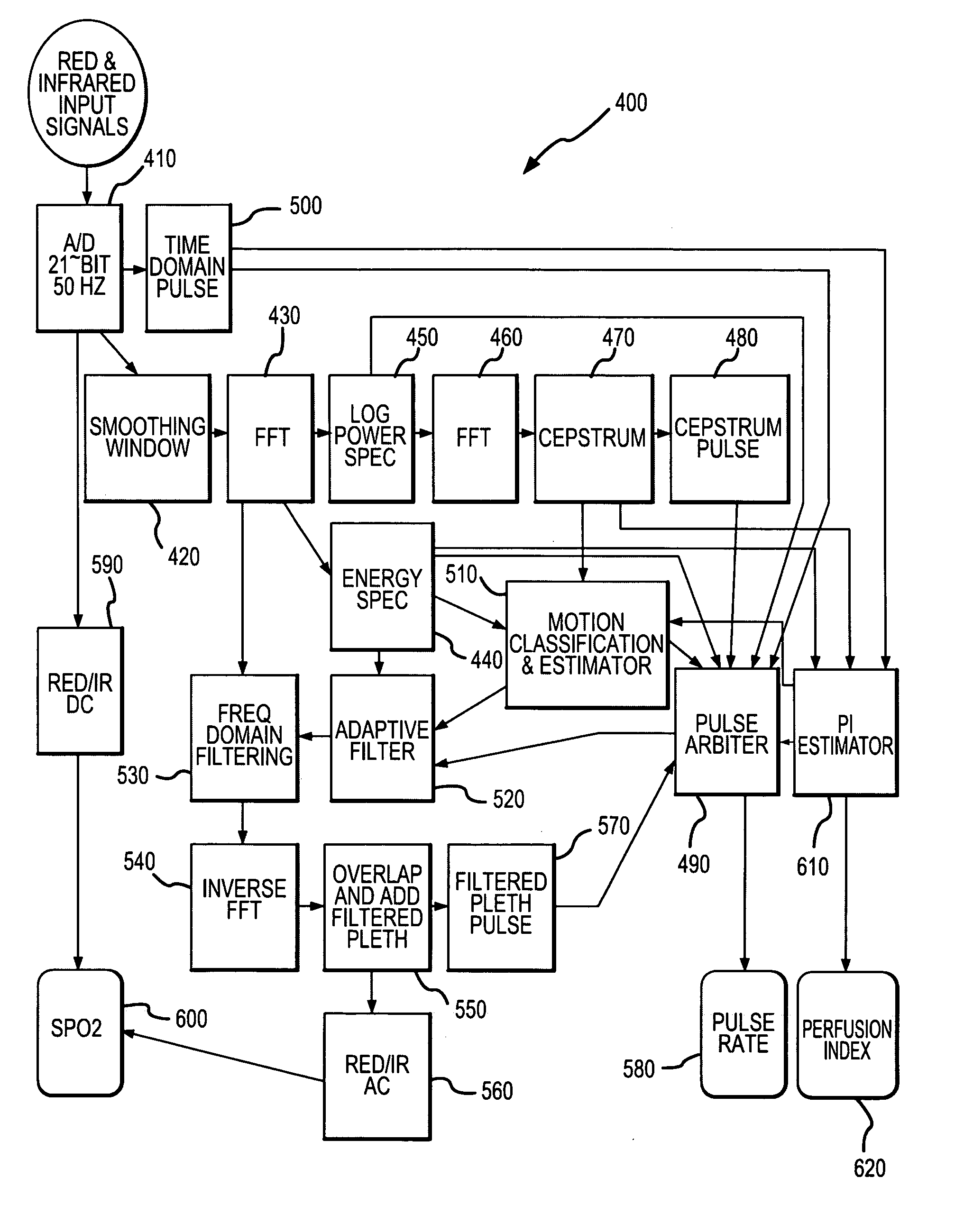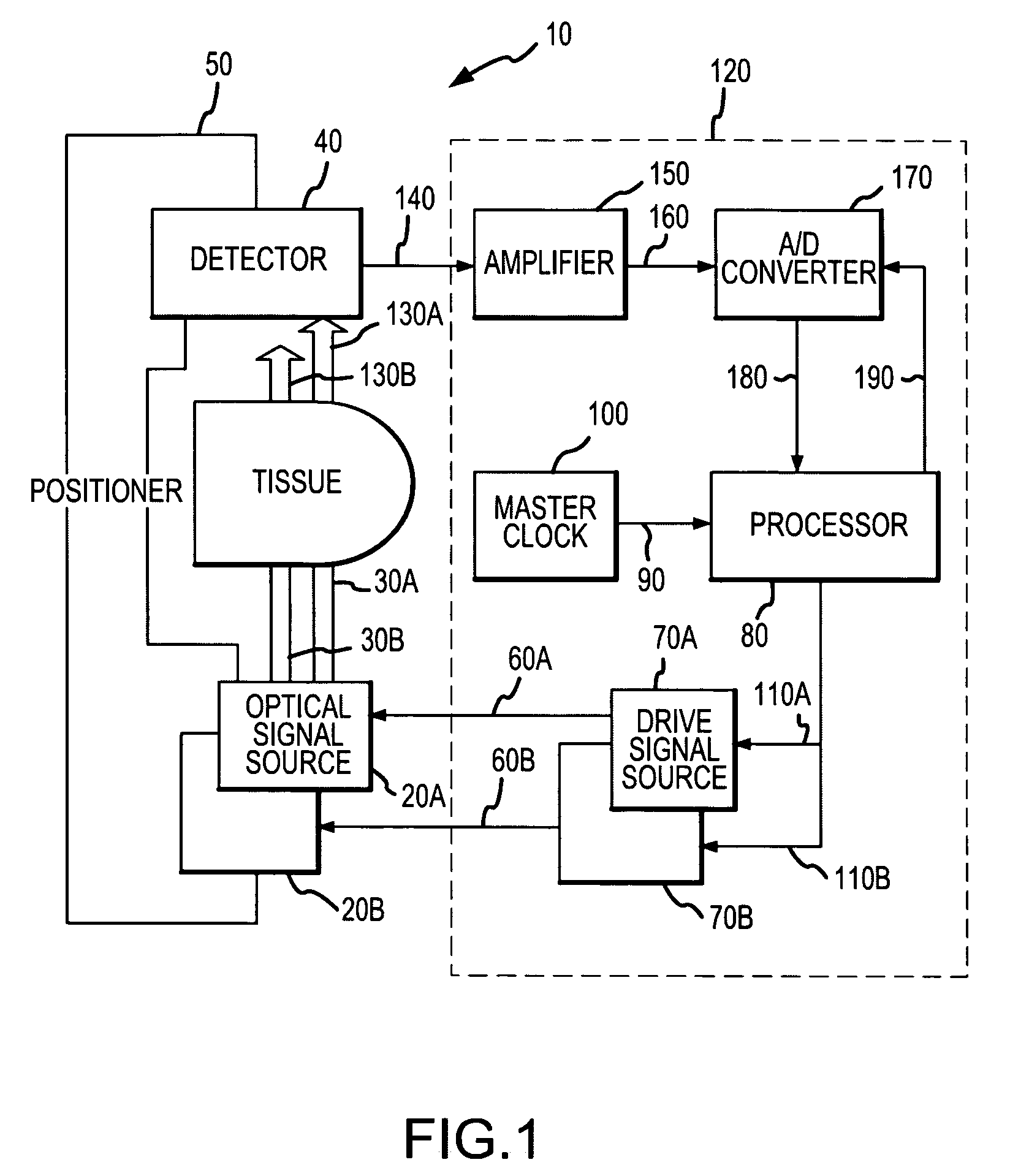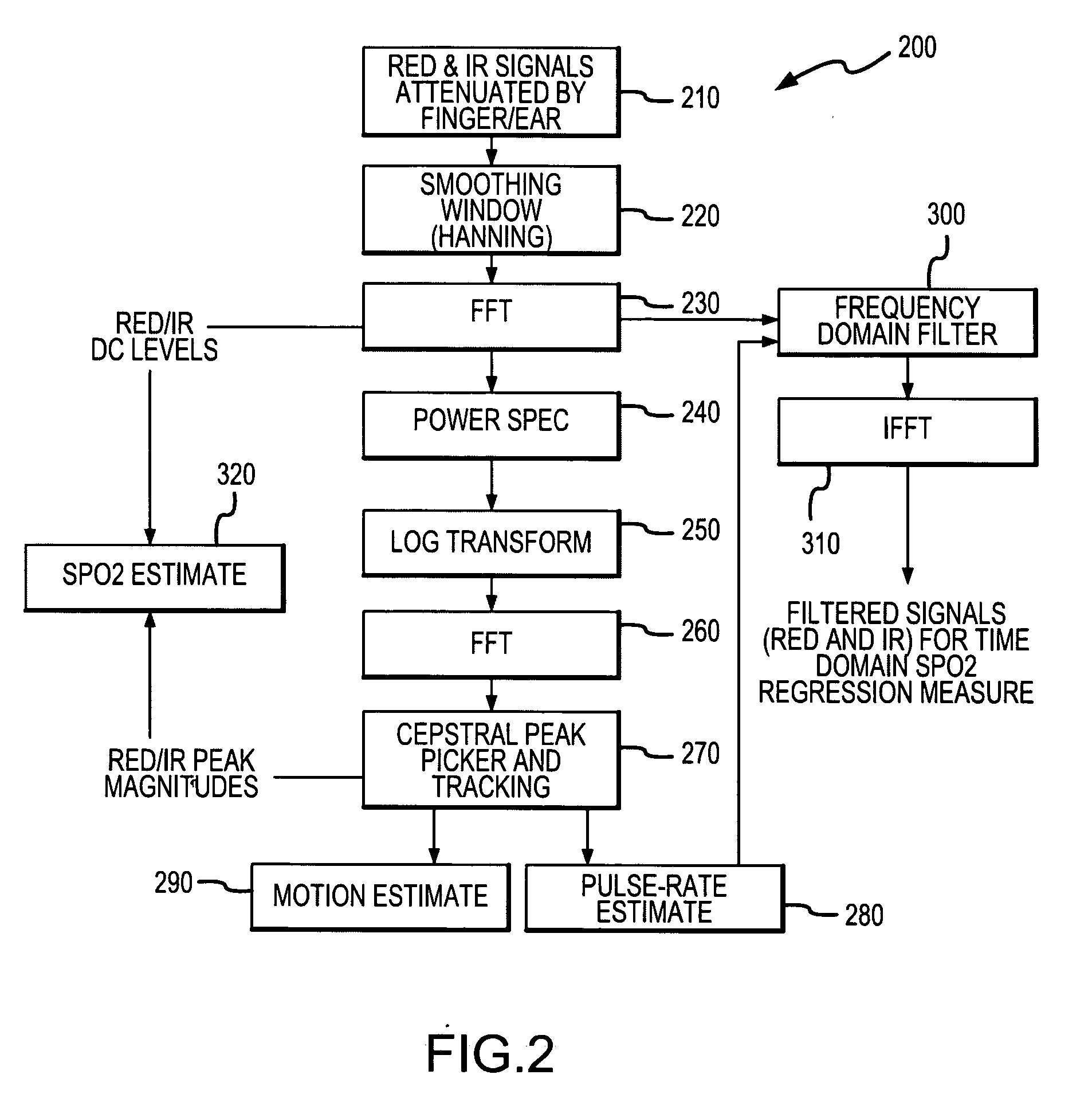Use of time indexed plethysmographic spectral data in assessing saturation estimation validity
a plethysmographic and spectral data technology, applied in the field of identification and use of pulse oximetry signals, can solve problems such as overinclusion of interfering information or artifact-affected signals, and difficulty in distinguishing useful physiological information from interfering information based on spectral shape or waveform information,
- Summary
- Abstract
- Description
- Claims
- Application Information
AI Technical Summary
Benefits of technology
Problems solved by technology
Method used
Image
Examples
Embodiment Construction
[0065] In the following description, a pulse oximetry system is first described, followed by certain motion processing. Thereafter, specific functionality for distinguishing useful physiological information from artifact based on analyses substantially independent of spectral shape or waveform is described.
[0066] Referring now to FIG. 1, there is shown a block diagram of one embodiment of a pulse oximeter 10 in which a plethysmographic signal processing method in accordance with the present invention may be implemented. The pulse oximeter 10 is configured for use in determining the pulse rate of a patient as well as one or more blood analyte levels in the patient, such as an SPO2 level. It should be appreciated that a plethysmographic signal processing method in accordance with the present invention may be implemented in pulse oximeters that are configured differently from the pulse oximeter depicted in FIG. 1 as well as in other environments wherein plethysmographic signals are pr...
PUM
 Login to View More
Login to View More Abstract
Description
Claims
Application Information
 Login to View More
Login to View More - R&D
- Intellectual Property
- Life Sciences
- Materials
- Tech Scout
- Unparalleled Data Quality
- Higher Quality Content
- 60% Fewer Hallucinations
Browse by: Latest US Patents, China's latest patents, Technical Efficacy Thesaurus, Application Domain, Technology Topic, Popular Technical Reports.
© 2025 PatSnap. All rights reserved.Legal|Privacy policy|Modern Slavery Act Transparency Statement|Sitemap|About US| Contact US: help@patsnap.com



